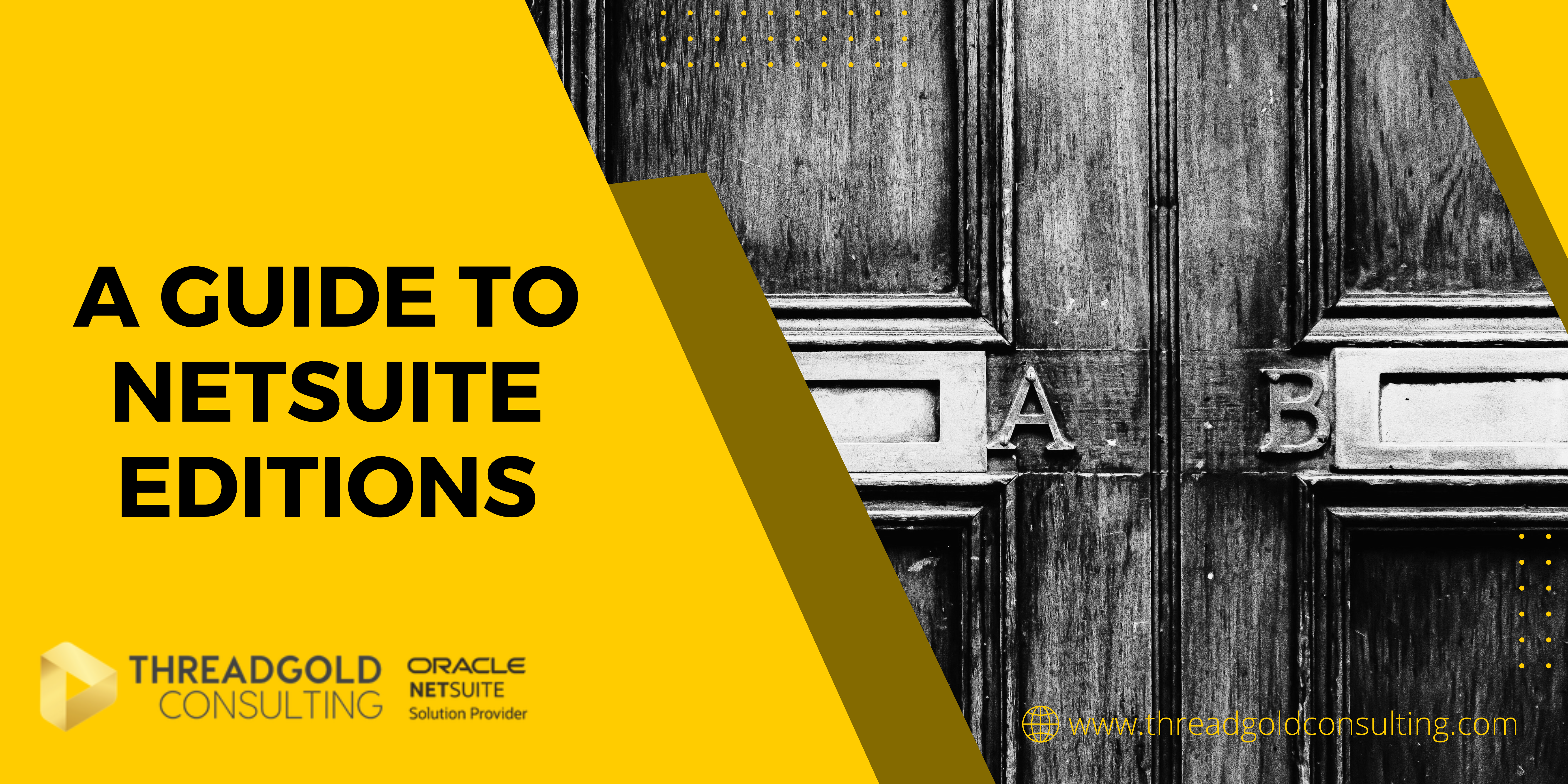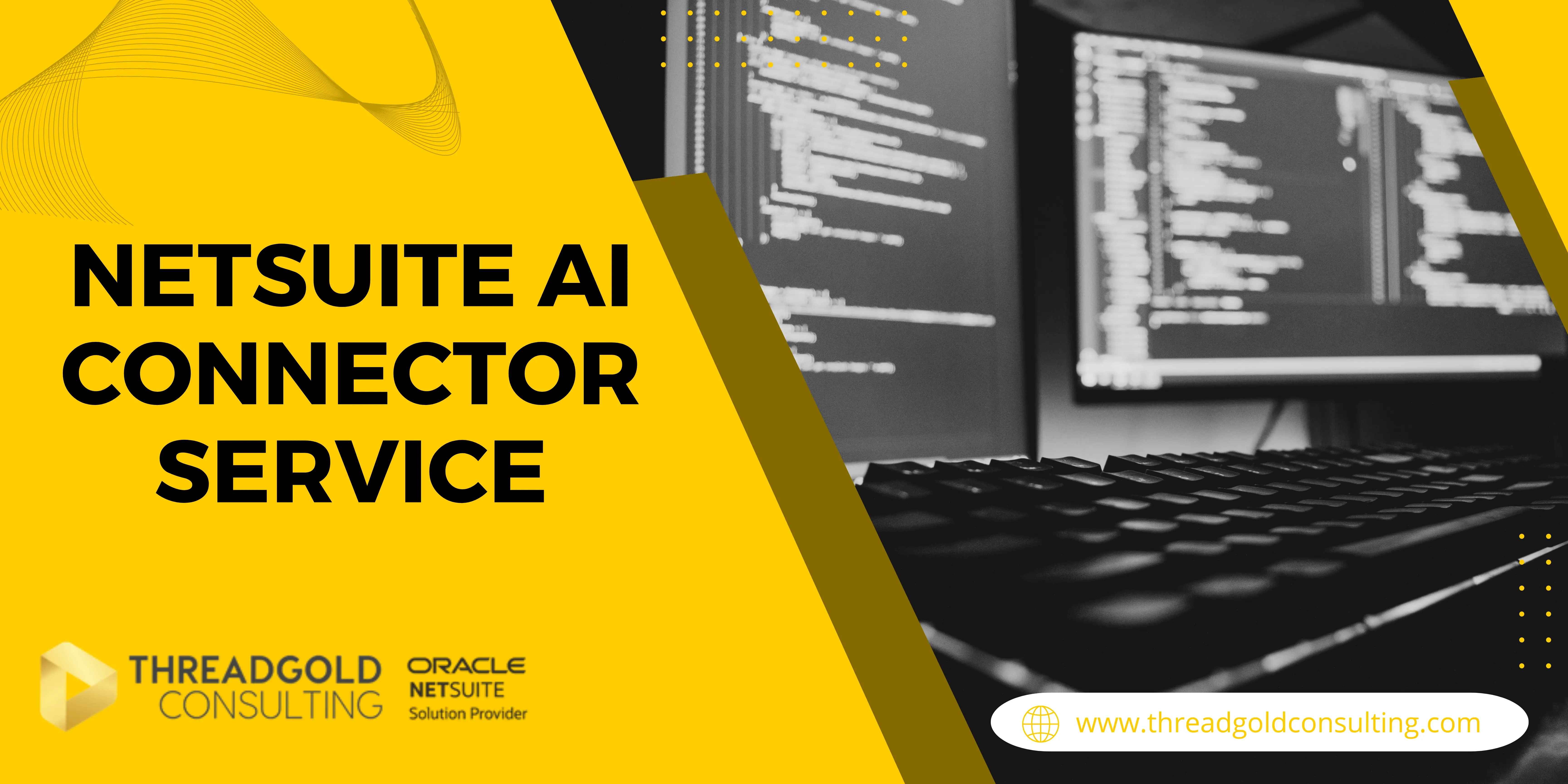Evaluating the many different ERPs is hard enough, but then understanding the many different editions, modules, users costs and more can be slightly dull. Luckily, NetSuite only offers 2 different editions of it's software, making it much easier to assess which one is right for your business. This blog post will describe the different editions and give you the tools to pick the best one for you.
Legacy NetSuite Edition
The first NetSuite edition that has been around since it's conception is classed as the "Legacy Edition". NetSuite's legacy edition is broken down into 3 different categories, depending on the size of your business. The different categories are as follows:
- Starter Edition - This is for companies that do not require more than 10 full users (we will go on to discuss users a bit later), are only managing one legal entity, and don't have over 50 employees. This edition is therefore more suitable for small businesses.
- Mid-Market Edition - This is for companies that require more than 10 full users and are managing two or more legal entities. This edition is therefore suitable for small to medium size businesses.
- Enterprise Edition - This is for companies that require more than 1000 full users and are managing two or more legal entities, and therefore is more suitable for very large and established organisations.
Each of these editions comes with the standard out of the box CRM and ERP functionality, which include a range of different modules including sales force automation, partnership relationship management, accounts payable and order management.
SuiteSuccess Edition
SuiteSuccess is a methodology developed by NetSuite aimed at helping businesses implement their ERP system more efficiently and effectively. It's designed to facilitate faster deployment and ensure that customers can quickly benefit from NetSuite's capabilities.
The core principles of SuiteSuccess focus on delivering an agile and phased approach to implementation, which is tailored to meet the specific needs of various industries and business sizes.
Like the legacy version, SuiteSuccess also offers different levels, which is again, mostly based on number of users. These include:
- Starter - For companies with less than 10 users and up to 50 employees.
- Standard - For companies that require ERP only (no CRM) functions, for more than 10 users and two or more legal entities.
- Premium - For companies requiring full ERP AND CRM capabilities, for more than 10 users and two or more legal entities.
Here’s a further breakdown of what SuiteSuccess offers...
1. Industry Tailored
SuiteSuccess is structured around industry-specific best practices. NetSuite has pre-configured the solution to address the common challenges and requirements of different industries, such as retail, manufacturing, software, services, nonprofit, and more.
This means that the system comes with pre-built workflows, KPIs (Key Performance Indicators), reports, and dashboards that are relevant to each sector. The modules include:
- Retail: Supports point of sale, e-commerce, CRM, marketing, merchandising, and inventory.
- Manufacturing: Features for product data management, production planning, shop floor control, and procurement.
- Wholesale Distribution: Streamlined supply chain management, warehouse fulfillment, and demand planning.
- Software/Technology: Subscription billing, revenue recognition, and recurring revenue management.
- Nonprofit: Fund accounting, grant management, and donor CRM.
2. Pre-built Configurations
The methodology includes pre-built configurations that reflect roles within a company, from CFOs to sales managers, providing users with a dashboard view most relevant to their job functions.
This setup accelerates the deployment process as it reduces the amount of initial customisation required.
3. Staged Approach
SuiteSuccess promotes a staged approach to ERP implementation:
- Engage: Understanding and validating the customer’s business requirements and preparing a precise project scope.
- Configure and Test: Utilizing NetSuite’s pre-built configurations to align the solution with the customer’s processes.
- Go-Live: Assisting the customer in going live with basic functionalities to quickly achieve some level of ROI.
- Optimize: Continuously improving the solution post-implementation, adding new features, and refining processes as the business evolves.
4. Best Practices
Leveraging decades of accumulated experience across thousands of deployments, NetSuite with SuiteSuccess delivers industry-leading practices in business processes. These best practices guide businesses on the most effective ways to manage all aspects of their operations from financials to CRM to e-commerce.
Overall, SuiteSuccess is essentially a new and improved NetSuite, allowing you to implement faster and benefit quicker.
How Do I Choose the Right NetSuite Edition For Me?
Choosing between the legacy NetSuite implementation and the SuiteSuccess edition involves considering several factors that align with a company’s specific needs, resources, and goals. Here’s how you might decide which path is best for you:
1. Implementation Speed
- SuiteSuccess: If you're looking to implement an ERP system quickly, SuiteSuccess is designed to accelerate the deployment process. It offers pre-configured solutions based on industry best practices, which can significantly reduce the time to go live. This is particularly beneficial if your business has straightforward processes or those that do not require extensive customisation.
- Legacy NetSuite: If your business has unique business processes or complex requirements, you may prefer the legacy approach, which allows for a more tailored and deep customisation from the ground up. This can be more time-consuming but ensures that all specific needs are meticulously met.
2. Industry Specific Needs
- SuiteSuccess: This edition is structured around industry-specific solutions with pre-built functionalities that address common industry challenges. For companies in industries well-represented by SuiteSuccess templates (like retail, manufacturing, or services), this can be a compelling reason to choose SuiteSuccess.
- Legacy NetSuite: If your business operates in a niche industry not fully covered by SuiteSuccess or has highly specialised requirements that differ from common industry practices, the legacy version might be more suitable. It allows for building the system based on highly specific business models and operational needs.
3. Resource Availability
- SuiteSuccess: This option is ideal for companies that may not have a large IT team or extensive ERP implementation experience. SuiteSuccess includes ongoing support and best practices guidance, which can alleviate the strain on in-house resources.
- Legacy NetSuite: Companies with robust IT teams and resources to handle a complex ERP implementation might opt for the legacy version. This approach might also be preferable for companies that want greater control over every stage of the setup and customisation process.
4. Cost Considerations
- SuiteSuccess: SuiteSuccess may seem like the better option due to a faster implementation time, but the overall package is actually more expensive, due to it's more advanced base functionality that's already built in. You may save money on implementation costs though, as it will be quicker with SuiteSuccess.
- Legacy NetSuite: The legacy editions are cheaper, however you may spend more on implementation.
The main thing to consider when it comes to costs is your type of business. If your business is very simple, only operates in one entity, and requires extensive customisations, then you should definitely opt for the legacy editions.
SuiteSuccess automatically comes with OneWorld (financial consolidation module), which is beneficial for companies operating across multiple entities, but is not required for single entity companies, thus making your license unnecessarily more expensive.
For a much more in depth look at NetSuite pricing as a whole, check out our blog post. Or, fill in our NetSuite license calculator below!
5. Scalability and Flexibility
Both editions offer full flexibility and scalability, so this shouldn't be a big factor to assess when choosing between them. SuiteSuccess may be slightly easier to add on different modules, but it's still possible with the legacy editions.
Ultimately, the decision between SuiteSuccess and legacy NetSuite implementations will depend on the specific business needs, industry requirements, resource availability, and the strategic priorities of the company. Engaging with NetSuite consultants and undertaking a business process review can also provide valuable insights and recommendations tailored to the company’s unique context.
Threadgold Consulting have a wealth of knowledge and experience, and can offer you inside tips on how to reduce your overall NetSuite cost, for both the license and implementation. Get in touch today and we can schedule your FREE NetSuite demo!
FAQs
Q: What are the different NetSuite editions available?
A: NetSuite currently offers two main editions: the Legacy Edition (Starter, Mid-Market, and Enterprise tiers) and the SuiteSuccess Edition (Starter, Standard, and Premium tiers).
Q: What is the difference between NetSuite Legacy and SuiteSuccess editions?
A: The key difference is that SuiteSuccess includes pre-built industry templates and faster deployment, while the Legacy edition allows for more customization and a slower, tailored implementation.
Q: Is SuiteSuccess more expensive than the Legacy NetSuite edition?
A: Generally, yes. SuiteSuccess includes OneWorld and more built-in functionality, which increases licensing costs. However, the implementation is faster, which often results in fewer services costs.
Q: Which NetSuite edition is best for small businesses?
A: Small businesses often choose the Starter edition of either Legacy or SuiteSuccess, but this is very much dependent on their budget, timeline, and industry-specific needs.
Q: Do I need OneWorld with NetSuite?
A: Only if you operate across multiple subsidiaries or legal entities. SuiteSuccess includes OneWorld by default, but single-entity businesses won't need it and could save money with the Legacy edition.
Q: Can I switch from Legacy NetSuite to SuiteSuccess later?
A: Yes, but it involves a reimplementation process. It’s better to select the right edition from the start based on your growth plans and industry requirements.
Q: How long does it take to implement NetSuite SuiteSuccess?
A: On average, SuiteSuccess can be implemented in 100 days or less, depending on the company size and complexity. Legacy implementations may take longer.
Q: Can I customize SuiteSuccess like the Legacy edition?
A: Yes, but SuiteSuccess is designed to minimize customizations initially. You can always add custom functionality post-go-live.





.png)
